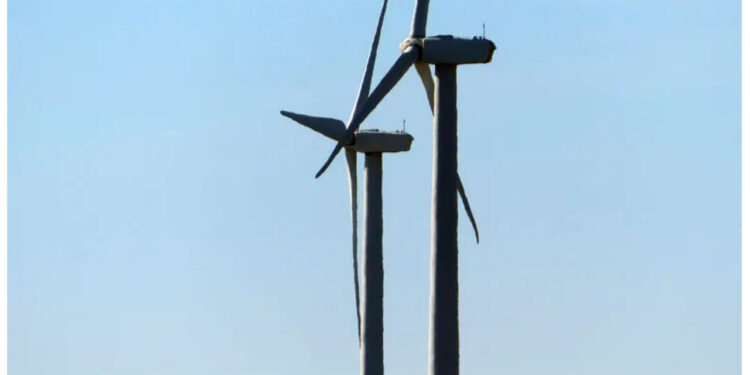Three anti-wind power organizations are suing New Jersey to revoke a significant environmental approval for a proposed wind energy farm off the coast of Long Beach Island.
On April 26, Save Long Beach Island, Defend Brigantine Beach, and Protect Our Coast NJ filed a lawsuit in appellate court challenging the New Jersey Department of Environmental Protection’s determination that the Atlantic Shores wind farm project complies with federal coastal protection laws.
Atlantic Shores is one of three proposed wind farms off New Jersey’s coast that have received preliminary permission.
Bruce Afran, a lawyer representing the groups, said that the “approval flies in the face of the federal regulator’s environmental impact statement that says the Atlantic Shores project will damage marine habitat, compress and harden the seafloor, damage marine communities, compromise migration corridors for endangered species, and cause commercial fishing stocks to decline.”
Orsted, a Danish wind energy developer, cancelled the project in October after the same three groups attacked a wind farm it had proposed.
The lawsuit was the latest setback in New Jersey’s bid to become the East Coast leader in offshore wind. These three groups are some of the most vociferous and litigious opponents of offshore wind projects.
The New Jersey Attorney General’s Office declined to comment on the ongoing litigation, and Atlantic Shores did not reply to a request for comment on Friday.
However, Joshua Henne, a political strategist who advises numerous climate change organizations, accused anti-wind groups of colluding with the fossil fuel sector.
“There ain’t nothing grassroots about this effort,” he told reporters. “It’s astroturf, seeded by the fossil fuel industry.”
The president of Protect Our Coast, Robin Shaffer, denied the accusation.
He informed the audience, “We have never received a single penny from any entity associated with the fossil fuel industry.” “Not one.”
Until a year ago, the group kept its money at the Caesar Rodney Institute. The Energy and Policy Institute claims that the Delaware-based nonprofit is among several think tanks that favor and receive support from fossil fuel interests.
Caesar Rodney charged Protect Our Coast a 12% fee to retain its money, according to Shaffer, who added that his group has no present affiliation with the institute.
He also mentioned that one of Atlantic Shores’ owners is an offshoot of Shell, the worldwide oil and gas firm.
Shaffer claimed that state and federal officials are rushing to approve offshore wind projects without sufficiently examining the potential negative consequences.
“It’s as if they are building an airplane while it’s in the air; they have no idea where the plane is headed or if it can be landed safely,” he added.
Jason Ryan, a spokesman for the American Clean Power Association, stated that the current slate of offshore wind projects is “among the most carefully planned and analyzed infrastructure projects in U.S. history; we are confident their permits will withstand legal scrutiny.”
Earlier this week, the New Jersey Board of Public Utilities launched a fourth round of solicitations for more offshore wind projects.
The state intends to generate 100% of its power from clean sources by 2035.










